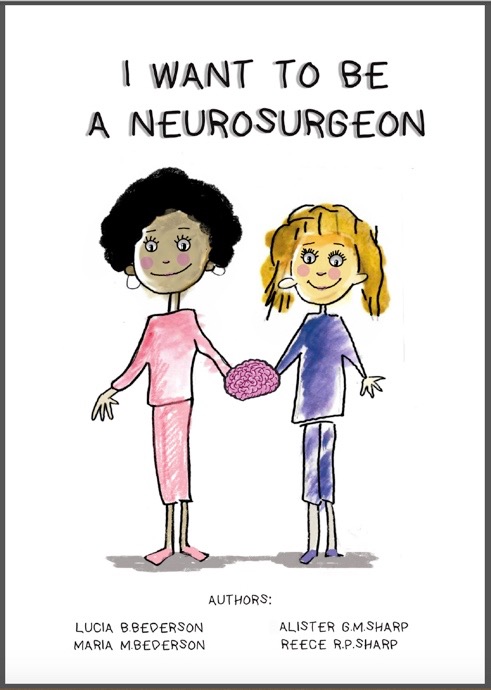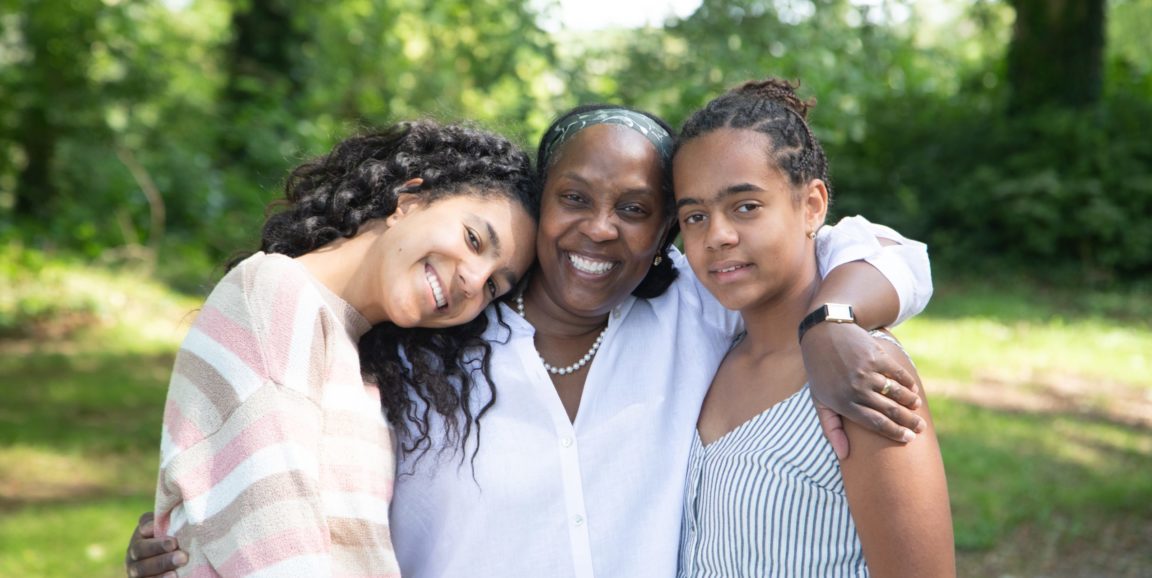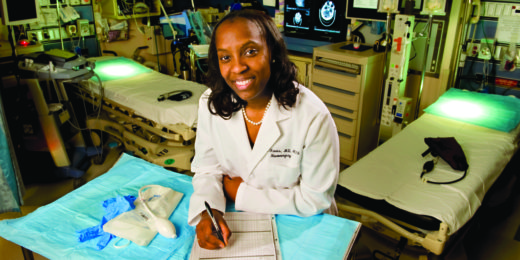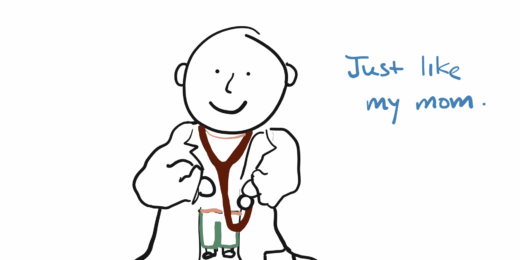Being the daughter of a female neurosurgeon is inspiring -- just ask Reece and Alister Sharp. These teenaged sisters co-wrote a children's book about it with two other young women, Lucia and Maria Bederson.
I Want To Be A Neurosurgeon provides their take on life with their mothers. Odette Harris, MD, MPH, is director of brain injury care at Stanford Medicine and, in 2018, became one of the first black female professors of neurosurgery in the United States. Isabelle Germano, MD, MBA, is a professor of neurosurgery, neurology and oncology at the Icahn School of Medicine at Mount Sinai in New York.
I caught up with Reece, 14, and Alister, 16, to find out more about the impetus for publishing the e-book and what they hope readers -- especially young girls -- will take away from it.
Where did the idea for the book come from?
Alister: When I was in fifth grade, my sister and I realized that having a mother who leaves at 4:30 a.m. to save lives wasn't exactly typical. We wanted to share our experiences and how our mom inspired us. It was almost as if we had a personal superhero, and we wanted to write her 'comic book.'
Reece: My mom knew of Dr. Germano and her family, and so she suggested that we all collaborate to make the idea a reality. When we first met Lucia and Maria, they had a ton of ideas for the illustrations. All of us brainstormed and worked together to come up with the book we have now.
What's it like to be the daughter of a female neurosurgeon?
Reece: While I was in elementary school, I used to wake up in the morning and she was at work, and when I was really young and went to bed at 6:30 or 7 p.m., she was not home when I fell asleep.
Once a week, we had a speaker come and talk about what they do for a living. After my mom's talk, all of the kids in my grade came up to me and asked questions about her. She also used to give presentations about how to protect yourself while riding a bike or how the brain works. I noticed how all the kids were engrossed in the words she was saying. I just remember thinking to myself, "Wow! That's my mom!"
Alister: Her job keeps her very busy, but it makes the time we spend together very special. I'm fortunate to have a mom who loves her family a lot, because I know that even with her sometimes hectic schedule, she will be at every single performance or event I am a part of. I've also been lucky enough to see one or two surgeries.

How does your mom's profession inform your own academic and/or future career decisions?
Reece: Knowing all she did to get where she is now is very inspiring. It is almost scary knowing what I can accomplish in my career and life. It can be stressful and daunting at times. But mostly it makes me work harder. It motivates me to push myself.
Alister: Being a student who loves STEM (science, technology, engineering and math), I love the idea of a medical career -- and following my mother's footsteps to become a neurosurgeon isn't off the table! What is most important to me is ensuring that my future profession makes a lasting impact in the lives of others, and helps to make the world a better place.
How do you think career opportunities differ for boys and girls?
Reece: I'm lucky to be able to go to an excellent all-girls school. At my school, we are given the opportunity to branch out and to experience different things that may help us in our careers; and we are taught to strive for what we want to achieve and to put ourselves out there.
Alister: My life is full of amazing female role models: my mother, my teachers and many other family members. Regardless of gender, I think that all of my friends, in school and outside of school, believe that they can pursue any career they want; and I am extremely thankful to live in an area that encourages an open and enthusiastic mindset.
What do you hope others will take away from reading the book?
Reece: Even if you're not the child of a doctor and you can't necessarily relate to the things mentioned, I think it's really nice to read about other people's experiences. Mostly, I just really hope people will enjoy the book. I also really want readers to know that it's not just the content that's important, it's also the fact that we made the book a reality.
Alister: I hope that whoever reads our book will realize that anyone can make an impact on the world. It's important to believe in your ability to do anything you put your mind to and to know that there are people in your life that you can always look up to. Neurosurgery is a very male-dominated field, and a book featuring two female neurosurgeons can hopefully empower young girls who might not yet believe that anything is possible.
Photo courtesy of Reece Sharp






